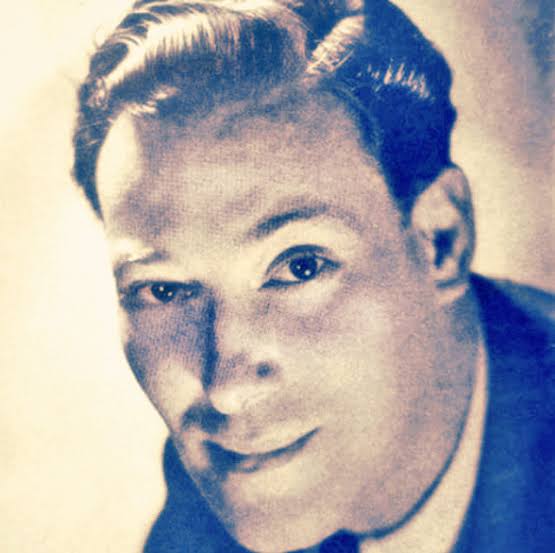
RESTORE YOUR #PERSEVERANCE OF THE #IDEAL: RISE ABOVE THE SUBTLETY OF #GIVINGUP
Reading Time: 2 minutesThere’s a surprising way of thinking that seems to be good, sometimes independent and even positively powerful. Yet it is
WELCOME TO THE POWER OF AWAKENED IMAGINATION ROYAL ACADEMY

by Neville Goddard
This morning’s subject is “The Pruning Shears of Revision”. I firmly believe that if you will wisely and daily use the pruning shears of revision that you will find there is no objective beyond your ability to realise. And I mean that seriously, no objective beyond your ability to realise.
When I was a boy of seven, a lady said to me, “I have had a vision concerning you. I’ll make it now very, very clear to you–I do not know what it is you are going to do, but I’ve been shown you will do something that through the centuries after you are gone man will not undo it. I can see it and through the centuries you will grow in stature long after you have gone. And then three men will be mentioned in hundreds of years to come and you will be one of the three when something is discussed that was done for man.”
I feel that this morning’s subject that this could be it, that if I never said another word, and you heard it and believed it, and really used it, this would be the planting that would spread from us here that tomorrow could not undo. For it is magic, this pruning shears of revision. It really is not only the achievement of objectives, but if you do it daily, it will awaken in you the spirit of Jesus, which is continual forgiveness of sin.
In this teaching the sinner should always go free; you will never condemn him, for when the spirit is awake in you you will realise in him there is no condemnation, only forgiveness, and forgiveness is not as man of the world thinks when he omits the actual execution of his revenge. What we mean by forgiveness the identification of the other that we would forgive with the ideal that other wants to embody in the world. And so we do to him what we expect or would like the world to do to us. So whatever I myself would like to embody that is the vision that I must hold of every man that I meet in my world; that no man is to be discarded, every man is to be redeemed, and my life is the process whereby that redemption is brought about. And I do it by simply identifying the other with the ideal I want to externalise in my world.
Now we will go back to the 2nd of Genesis. It is said “And God placed man in the garden of Eden to dress it and to keep it.” Now when you read the story you think it happened thousands of years ago. I have come to tell you it is now. You are now in the garden of Eden and you think you are shut out or banished. You are in it, and the garden is your mind, but you need–like every gardener–you need pruning shears. For you have slept, as you are told in that second chapter; having slept, weeds have appeared in the garden and the weeds are revealing themselves by the conditions and the circumstances of life. For your garden is always projecting itself on the screen of space, and you can see by looking carefully at your world what you allow to grow in the garden of God. But you have a mission, you have a purpose, it is not to amass a fortune–you can do it if you want to–it’s not to be famous, it is not to be some mighty power, but simply to tend the garden of God. That’s your purpose. You are placed in the garden to dress it and to keep it, that only the lovely things grow in the garden of God.
Now every man in the world is rooted in you who look out and see that world. Every man is rooted in me; he ends in me as I am rooted in and end in God. Because he is rooted in me he cannot bear other than the nature the root allows. So he is in me and any changes desired in the outer world can be brought about only if I change the source of the thing I see growing in my world.
” You see yonder fields?
Don’t be surprised when you see sesamum:
The sesamum was sesamum,
The corn was corn,
The silence and the darkness knew
So is a man’s fate born”
So don’t judge it, because you are the source of the thing that you are beholding. Now turn within and prune it by using these pruning shears of revision.
Now this is how we do it. At the end of my day, I review the day; I don’t judge it, I simply review it. I look over the entire day, all the episodes, all the events, all the conversations, all the meetings, and then as I see it clearly in my mind’s eye, I rewrite it. I rewrite it and make it conform to the ideal day I wish I had experienced. I take scene after scene and rewrite it, revise it, and having revised my day, then in my imagination I relive that day, the revised day, and I do it over and over in my imagination until this seeming imagined state begins to take on to me the tones of reality. It seems that it’s real, that I actually did experience it and I have found from experience that these revised days, if really lived, will change my tomorrows. When I meet people tomorrow that today disappointed me, they will not tomorrow, for in me I have changed the very nature of that being, and having changed him, he bears witness tomorrow of the change that took place within me. It is my duty to take this garden and really make it a garden by daily using the pruning shears of revision.
I know from experience it will not only bring about these objectives, and bring about these changes, but the glorious thing is, it awakens in you, who use it, the spirit of Jesus, and you find yourself then not justifying but forgiving, and you will realise that freedom and forgiveness are indissolubly linked. You cannot be free and not forgive, for the one that you would bind and judge and condemn anchors you by your own judgement of him–for he is in you. And so by identifying him with the ideal you want to really realise you free yourself.
You are told “Forgive and you shall be forgiven. Forgive not and then you shall not be forgiven”. It’s automatic; it can’t be otherwise for the whole springs from you who behold it. And as you begin to practice it the very spirit arouses itself within you and you know that you are he that others spoke about and thought lived 2000 years ago.
So, when you realise it, you realise it through actual knowledge, you know it; no argument, you don’t tell others, you know that you are he. And then you will read the words in the ninth of Hebrews, “He appeared to put away sin by the sacrifice of himself”. And you will know you are the one that put away sin by the sacrifice of self and by the sacrifice of self it’s not being a brave one who throws himself in the line of fire to protect a brother, it doesn’t mean one who gives his body to be burned, one who is nailed on a cross, but the self of man is the sum total of all that that man believes and consents to as true. So that’s the self that is sacrificed.
I heard of this lady and she would make some man a wonderful wife, and yet she is unwed. She desires to be the companion of a great noble person, but she is unwed, I heard that. That becomes a part of myself, that’s my knowledge; I must sacrifice that self, that that aspect of my being be as happy as I am and those in my world are. For that’s the self I must sacrifice and put away sin, for sin to the mystic means missing the mark; it doesn’t mean the violation of certain codes, unless of course you have a mark and the violation fell short, but sin to the mystic is simply haying an aim in life and failing to realise it. So when you miss the mark you have sinned; so he appeared to put away sin by the sacrifice of himself, and knowing that himself is only all that he consents to, all that he accepts, all that he believes to be true, then what am I believing concerning that one–he is unemployed and he can’t find a job? I’m believing it. Now put away that sin where he is missing his mark and then by the putting away of the sin I do it only by the sacrifice of myself and myself is that belief, so now I revise. I can’t say well, I will no longer believe he is unemployed: I believe he’s employed.
I do it by the pruning shears of revision. I bring him before my mind’s eye and I congratulate him on his good fortune because he is now gainfully employed. I allow him to accept my congratulations, because I do not see a man unemployed, I see him employed and he knows he is in my mind’s eye for in that state I have pruned him from the unemployed state and once more reshaped the branch that grows in the garden of God. Tomorrow people will see him as they could not have seen him before the pruning that took place within me and he will be gainfully employed.
That one is unwell, you prune that branch. You don’t accept one thing in the world as final unless it conforms to the ideal you want to realise in the world. But you do it daily; if you do not prune it daily you will get out of the habit, then weeds will grow. Every man who really is a gardener who calls himself a gardener, a gardener in the garden of God, for every day is the opportunity to really prune the tree, this wonderful tree. And so everyone that you meet is a branch rooted in the vine that you are and you are that special tree in the garden of God, a tree bearing life, a tree bearing fruit for the food of the nations. You are that one.
If you take me seriously today, tonight do not let the sun descend upon any vexation of the day. Just look at it, don’t deny it, don’t duck it, look at it that you may prune it and then reshape it. Take the conversations with your friends today, were they pleasant, were they arguments, no matter what it is, were they negative?
Then rewrite the script and just imagine the conversation to have taken place that now you are rewriting for the first time. And it will take place, for everything in your world that you behold, though it appears without, it is within, in your imagination. And this wonderful imagination of yours is Christ Jesus. Imagination is the actual habitation of every created thing. No matter what you see in the world, it springs from your imagination. So that’s where you go, that’s the workshop, the garden of God.
And now you have a mission, you have a purpose in life; it’s a noble purpose, because you have been selected to really become the chief gardener in the garden of God, and in the garden you must have pruning shears, and pruning shears is revision. You simply revise, and as you revise the day you repeal the day, for the day is not slipping into the past, it does not recede as people think, it is always advancing into the future to confront you, either pruned or in some strange weed-like state.
So it’s entirely up to us–I hope that every man and woman here today will take me seriously and start this day pruning your garden. pruning your mind. I know before I leave this city in a matter of two weeks that you will be able to tell me of the new things that spring in your world or that spring from the pruned tree that is your own lovely imagination. You try it: then you will know what Blake meant when he said. “In heaven, the only art of living is forgetting and forgiving.” The only art of living is complete forgetfulness by putting something in its place, no vacuum, but putting something in its place.
So when you read these strange stories that you read in the daily press, you simply ignore them. They mean nothing. Men who are calling themselves leaders, shepherds of the flock, they excommunicate–not just one religion, all religions the leaders take it upon themselves to excommunicate, not knowing nothing is to be discarded, not a thing in the world can you discard for it is forever, but it can be pruned and made to conform to the ideal image. The man who will not revise his day either does not know it or he has lost the vision of that life into the likeness of which it is the true labor of the spirit of Jesus that transformed this life. So you don’t discard them.
In the current issue of “Time” magazine there is that noble soul who is known to us as Spinoza, Baruch de Spinoza, who has given so much to the world of philosophy, so much everyone has been enriched because he walked the earth. And here 300 years later, the ex-premier of Israel, Ben-Gurion, has asked the leading rabbis today to rescind that excommunication of 300 years ago, and they tell this noble soul today that they cannot rescind the works of their forefathers, that the curse remains forever, and you should read that silly, silly curse as it’s printed in the current issue of “Time” magazine. They call upon all the angels to curse him, as though angels would curse; they call upon everything to blast him, you could not walk within four cubits of the man’s shadow; no one should talk to him, no one should show him kindness, no one should write him and never read anything he ever has to say; and that’s 300 years ago.
The rabbis who so cursed him have long been forgotten and if they do live, they live only by reason of their curse. And no one knows really who they really are, but you can’t forget if you read in this world the works of Spinoza. Everyone in this audience possibly has used one of his phrases; did you know it was he who said “nature abhors a vacuum”? Now you use it; I use it, but what is the source of it–it was Spinoza. For here was this giant of a mind that after 300 years little minds who think they’re leading the flock; they call themselves shepherds. They should go back and read well the Book of Jeremiah, “You shepherds who spoil my vines and you who have come into my garden and you have taken my vines, now it bears no grape and it bears no leaf, and the garden of Jerusalem now has become a weed.” Read it in Jeremiah, how he cries out because shepherds, who call themselves shepherds, are blind leaders of the blind.
You take me this morning at my word; you owe me nothing, it costs you not a thing to come here this morning, you come you give me your time and I give you my time, but you go out and try it and start this day pruning that wonderful imagination of yours. Do you know someone that is evil? Stop knowing it by bringing him before your mind’s eye and carry on with him the most wonderful conversation in the world, with a tender spirit, a loving spirit, and believe in the reality of this communion, because if you really do it, you are entering the kingdom of heaven, for you enter heaven by a loving, knowing communion with a friend. So make him a friend, if he is a lovely one, no matter what he is, you can prune him and then as you prune him you are doing the work which you were sent to do for man–and you are that man–you are placed this day in the garden of Eden to dress it and to keep it. Don’t let it continue growing weeds in your world.
You are absolutely responsible for every being you meet in this world; that’s your responsibility. Just like the teacher we told you of who took this little child that was just about to be expelled; no, the child is not expelled because she heard what you are hearing this morning. So she brought before her mind’s eye the child that the principal, the psychiatrist and all the faculty had agreed unanimously to expel her on her l6th birthday, for she was rude, she was crude, she was unethical; and she went home on a Sunday night and brought that child before her mind’s eye and communed with her and saw in her a tender child, a considerate child, a loving child. The next day, Monday, in class she expressed all the kindness of that revision of the night before, and ten days later when it was seen and witnessed by all the faculty, and the psychiatrist, another meeting was called and they repealed their verdict of ten days before and the child is not expelled. She still sits in the George Washington High School in New York City, which is considered an excellent school; and so there she is. with no black marks against her because one teacher sat in the audience, as you are here, and she believed, what I hope everyone here will believe, and she redeemed a branch of her own tree. She didn’t realise the child was herself. She saw up to that very moment all the children that she taught in pure objectivity. Blind man sees the world objective to himself, something detached from himself. When man begins to awake he sees everything subjectively related; everything he meets is part of himself, and what he does not now understand, still he knows that it is related by affinity to some as yet unrealised force in his own being. So he doesn’t discard it, he knows his life is the process by which he will redeem it and he redeems it by using the pruning shears of revision.
So I feel that if after these fifty years of walking this earth that this is what that lady saw when I was but seven, I could really close the eye on three dimensions at any moment knowing you will not disprove it: you may never use them but you will never disprove this art of revision. And any man who will try it will prove it to his own satisfaction that he can rise beyond the wildest dream of men, and rising he awakens the spirit of forgiveness. He will rise in the early stages in the successful venture; he will increase his income, he will do all these things, but he will realise after a little while that wasn’t the purpose. They were only toys to tickle him, toys to amuse him until he awoke within himself the spirit of Jesus; then he sees an entirely different mission, not the amassing of wealth but the redeeming of society, the redeeming of every man in the world. He comes to do his Father’s will and we are told in the 6th chapter of John, “This is my Father’s will, that of all that he has given me I should lose nothing but I should raise it up again.”
Lose nothing–no, you don’t excommunicate, you don’t rub out, you simply raise it up again and as you raise it up you raise yourself up and the journey is forever. You are moving up an infinite vertical line in your own wonderful imagination, and you only move up by lifting others up. Blind men think they can save themselves, and because they think they can save themselves and discard the rest. The blind man also said this hundreds of years ago. He saved as he saved others; himself he cannot save. I say to you that it’s a false statement; it was put into the mouth of the Pharisee, put into the mouth of the Sanhedrin, the leaders who thought they were leaders, but I will tell you a man saves himself by, and only by the saving of his fellowman. There is no other way of saving self other than by saving the real self and every man is rooted in you who observes men. And so don’t discard, raise them up, prune the tree, and become the real gardener in the garden of God.
Take anything; you have a child today: we took all the requests this morning, there were dozens and dozens of requests this morning. Everyone must be answered, none must be discarded; don’t say one is impossible, there is nothing impossible to your imagination and your imagination is Christ Jesus. With Him all things are possible. Use him, stir him, wake him from his sleep; he has been sleeping through the centuries: because he has slept he has dreamed into being all these strange misshaped states. For the world only bears witness of the use or misuse of imagination. As we are told, he is the only thing in the world. What he is the only thing in the world? –Your imagination, for it is the habitation of every created thing and by it all things are made and without it is nothing made that is made. So use it wisely, use it lovingly and any time you use your imagination lovingly on behalf of another you are at that moment literally mediating God to man. Imagination is the redemptive power of the world and you are actually mediating God to man by using it in a loving, wonderful way.

Reading Time: 2 minutesThere’s a surprising way of thinking that seems to be good, sometimes independent and even positively powerful. Yet it is

Reading Time: 2 minutesQ: Here’s my question, Adelere: How do I permanently merge with the version of myself who already trades successfully, calmly,

Reading Time: 4 minutesAre you a business executive or an experienced manager with a burning desire for business growth, increased profitability, and unparalleled

Reading Time: 6 minutesAre you ready to experience a life of complete wellness? I tell you, the Law of Assumption holds the key!

Reading Time: 4 minutesIt is quite easy for a lot of people to pass the buck when someone is not yet consciously set

Reading Time: 4 minutesThe divine man in you must become cultivated and attuned to his own inner world because there are worlds within